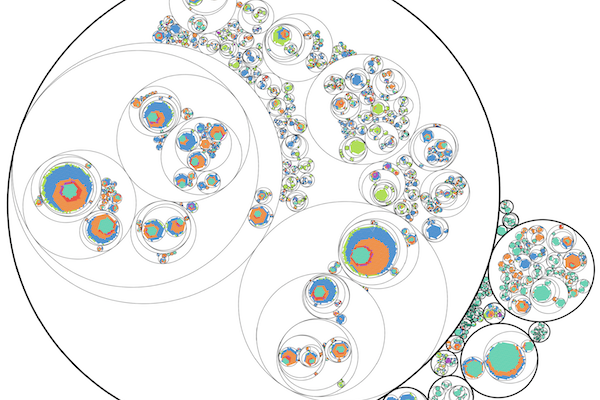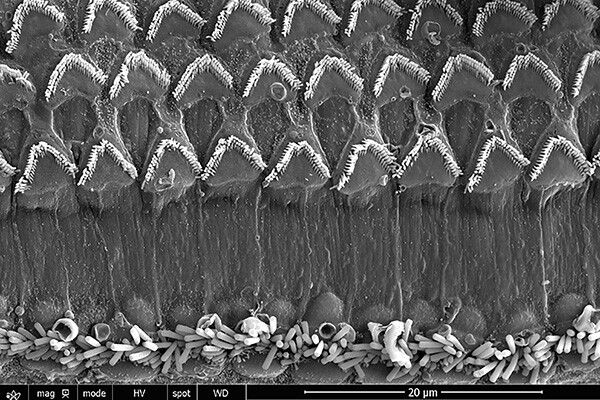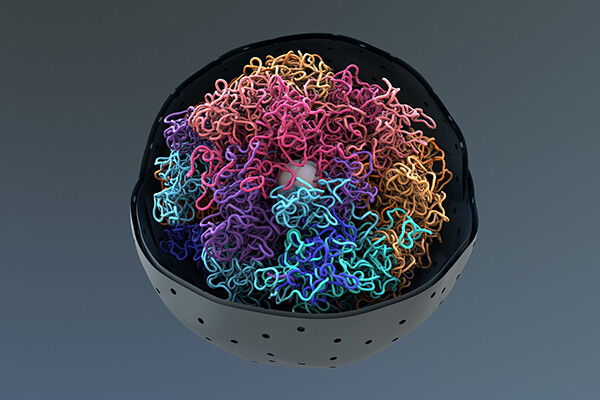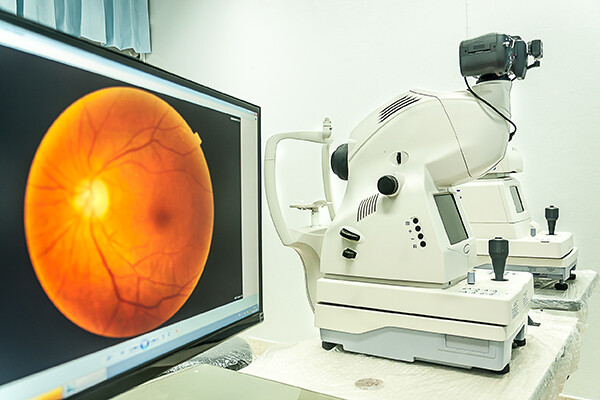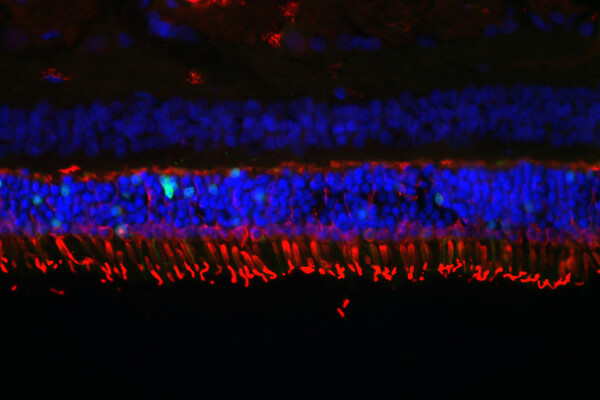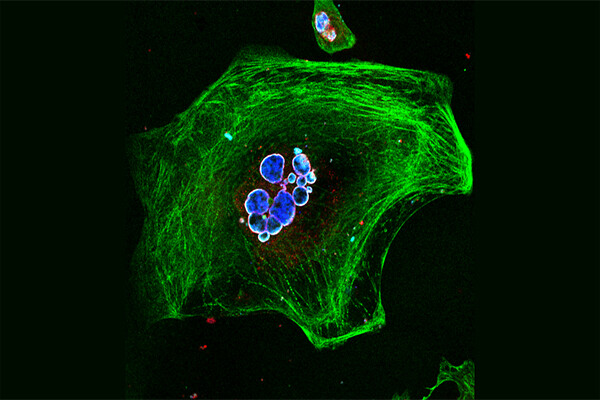4/16
Genetics
Pinpointing how cancer cells turn aggressive
Penn scientists have developed a new method for tracing the lineage and gene expression patterns of metastatic cancer at the single-cell level.
Discovery of a new genetic cause of hearing loss illuminates how inner ear works
A gene called GAS2 plays a key role in normal hearing, and its absence causes severe hearing loss, according to a study led by researchers in Penn’s Perelman School of Medicine.
How humans evolved a super-high cooling capacity
The higher density of sweat glands in humans is due, to a great extent, to accumulated changes in a regulatory region of DNA that drives the expression of a sweat gland-building gene, explaining why humans are the sweatiest of the Great Apes.
Mysterious ‘nuclear speckle’ cell structures may help block cancers
A new study out of Penn Medicine shows that the tumor-suppressor protein p53 brings speckles and DNA together to boost gene expression.
Gene therapy shows promise in initial trial for patients with childhood blindness
Penn Medicine researchers delivered working copies of the gene GUCY2D to the eyes of patients with severe vision impairments.
Turning back the clock on a severe vision disorder
Gene therapy triggered the regrowth of healthy photoreceptor cells and restored vision in dogs with a severe form of Leber congenital amaurosis.
New test can detect presence of gene doping in equines
A team of Penn Vet researchers have created and validated a quantitative test that is able to detect the presence of a gene doping agent in plasma and synovial fluid quickly and conveniently.
Overlooked part of human cells could be genetic key to common diseases
Long thought a vestigial part of human cells, new genetic analysis of the primary cilium shows that it may be tied to common conditions like diabetes and kidney failure.
Five Penn faculty named 2021 Sloan Research Fellows
The fellowship recognizes extraordinary U.S. and Canadian researchers whose creativity, innovation, and research accomplishments make them stand out as the next generation of scientific leaders.
Stem cell study illuminates the cause of an inherited heart disorder
A new study from Penn Medicine shows that LMNA gene mutations can disrupt the ‘identity’ of heart muscle cells, leading to a congenital form of dilated cardiomyopathy.
In the News
FDA approves two sickle cell therapies, including first CRISPR medicine
Kiran Musunuru of the Perelman School of Medicine says that gene editing will be the biggest story of the century.
FULL STORY →
More than 260,000 Penn Medicine patients have agreed to share their DNA for research, and the discoveries are just getting started
More than 260,000 people have signed up to participate in Penn Medicine BioBank, co-directed by Marilyn Ritchie and Dan Rader, which cross-references DNA with electronic health records to discover genetic variants of medical conditions.
FULL STORY →
Jim Wilson has two new promising gene therapy studies, but says investment in the cutting-edge field has ‘gotten worse’
Jim Wilson of the Perelman School of Medicine has published two new studies supporting the promise of cutting-edge gene therapy, finding evidence that the genetic treatments can be beneficial for years without raising the risk of cancer.
FULL STORY →
Famed 5,300-year-old Alps Iceman was a balding middle-aged man with dark skin and eyes
Iain Mathieson of the Perelman School of Medicine says that the Iceman genome was one of the first ancient human genomes ever published.
FULL STORY →
Philly gene therapy companies tap into city’s workforce training program for lab techs
Penn Medicine is noted for spearheading gene therapy for cancer treatment, being the first in the nation to use a gene editing tool to combat cancer in 2019.
FULL STORY →
These eight diseases are so rare that drug firms haven’t tried treating them with gene therapy. A $97 million program aims to help
Gene therapy for a rare form of blindness will be tested at Penn Medicine while gene therapy for a condition that causes skeletal deformities and seizures will be tested at the Children’s Hospital of Philadelphia.
FULL STORY →




